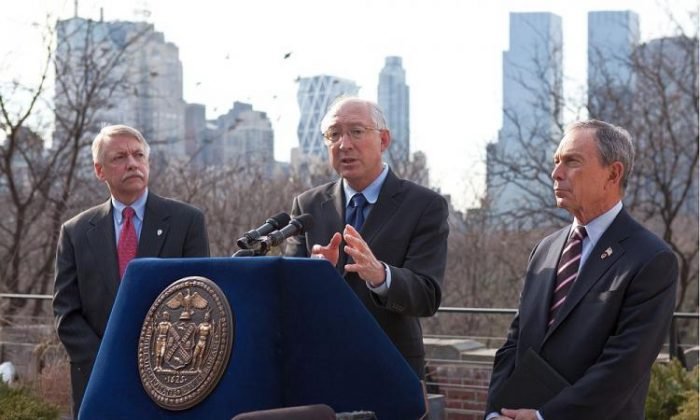US Ambassador Cautions Mexico’s Judiciary Reform Proposal Could Lead to Disruption
The U.S. ambassador to Mexico expressed concerns that the proposed judicial reform could endanger U.S.–Mexico trade relations.
U.S. ambassador Ken Salazar cautioned on Thursday that a judicial reform suggested by Mexican President Andres Manuel Lopez Obrador might lead to economic instability in the country in the upcoming years.
The contentious reform, scheduled for a congressional vote in September, includes a provision that mandates judges to be elected through popular vote. Lopez Obrador argues that the reform is necessary to combat judicial corruption.
However, Salazar believes that the proposed reform will not effectively address judicial corruption in Mexico or enhance its judicial system. Rather, he believes it poses a significant risk to the country’s democracy.
Salazar cautioned that the changes could allow drug cartels to manipulate Mexico’s judiciary and jeopardize U.S.–Mexico trade relations, which are dependent on investors’ trust in Mexico’s legal framework.
“Direct elections could also make it easier for cartels and other nefarious actors to exploit politically motivated and inexperienced judges,” he added.
Salazar emphasized the need for “competent judges” in Mexico’s judiciary to handle intricate legal matters such as extraditions, trade disputes, and other issues.
However, he pointed out that the proposal would eliminate the essential requirements for judges, allowing individuals with minimal legal experience to become judges through popular vote.
“Any judicial reform should include appropriate safeguards to ensure that the judiciary is strengthened and not corrupted by political influences,” Salazar maintained.
Judges and magistrates went on strike this week to protest the judicial reform, arguing that it would eliminate merit-based advancement and make the judiciary susceptible to external influences.
Juana Fuentes, leader of the union for Mexico’s judges and magistrates, stated that the strike would continue until the proposal was withdrawn, although the judiciary would handle urgent cases.
“We are approaching an unprecedented constitutional crisis that, if not rectified, will have lasting repercussions on our social fabric,” Fuentes warned during a press briefing on Wednesday.
Lopez Obrador, in a press conference, affirmed his commitment to the proposal despite the strike and assured that there would be no changes. His term as president is nearing its end, with President-elect Claudia Sheinbaum set to succeed him.
The Mexican peso depreciated by over 2 percent and the Mexican stock market declined by 0.6 percent following the strike on Wednesday.
Reuters contributed to this report.





